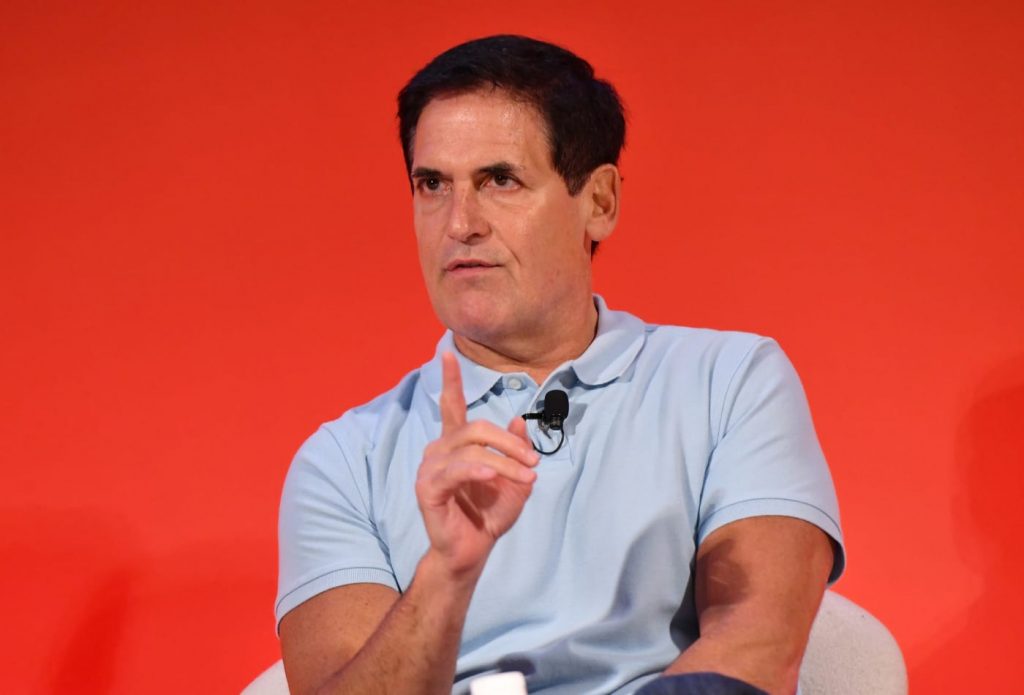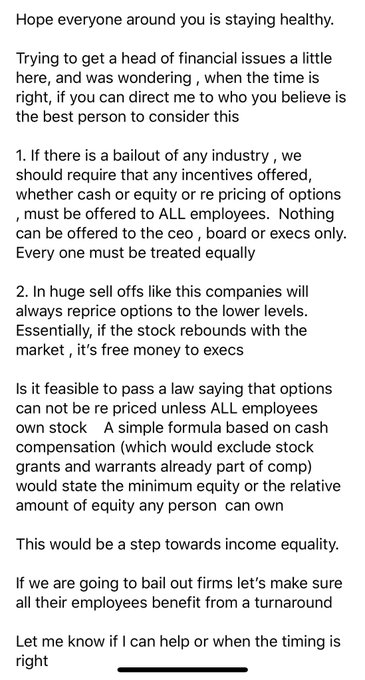The global economic outlook may be bleak at the moment, with the coronavirus pandemic resulting in countless business closures and putting millions of people out of work.
But billionaire entrepreneur Mark Cuban is confident that capitalism and Americans’ entrepreneurial spirit will eventually fuel an economic rebound that he believes will bring with it the birth of several “world-changing companies,” Cuban told Yahoo Finance in an interview on Tuesday.
“The one thing about the United States of America that’s different than every other country on the planet is that we’re a country of entrepreneurs. We look to start businesses,” Cuban said. “When we talk about the American Dream, when we talk about rags-to-riches stories, it starts with an entrepreneur coming up with an idea and executing on that idea.”
While the ongoing pandemic is currently having disastrous effects on businesses in America and abroad, Cuban is adamant that the economy will eventually rebound in a way that will create new opportunities for entrepreneurs to launch the next wave of “world-changing” businesses.
“We’re going to get to the other side of this. I’m positive of that,” Cuban said in the interview.
Indeed, there are several past examples of companies that succeeded in the wake of a global downturn or catastrophe. Companies like Amazon and Google survived the dot-com bubble bursting in 2000 to become tech giants that have shaped the future of the internet, while China’s Alibaba emerged from the 2002-2003 SARS epidemic to become one of the world’s biggest e-commerce companies.
And, while eventually pulling the economy out of a likely recession will offer businesses and entrepreneurs a “chance for a reset,” Cuban added, the billionaire businessman and star of ABC’s “Shark Tank” also feels it will be necessary to be “smarter capitalists” by giving employees more of a stake in their companies’ success.
“We can start to learn from our mistakes and say we need to have our employees participate more so that when we build back up or when we grow, then everybody can participate,” Cuban said. “I’m a big believer that every company — I’ve done this with my start-ups, every company I’ve started — and every employee should have stock and ownership in their company.”
Here, Cuban is echoing a stance he’s championed since well before the coronavirus pandemic reshaped the future of the global economy. In fact, Cuban has always been a believer that giving company equity to employees is the best way for avowed capitalists such as himself to address income inequality.
“The biggest issue for entrepreneurs, for capitalists, for those of us who are successful is, if someone is only going to be paid by the hour…they’re always going to fall behind,” Cuban said in a 2019 podcast interview for Recode Decode with Kara Swisher.
“We as entrepreneurs have got to make a point to give stock to everybody that works for us. Period. End of story.”
Cuban has also been adamant that any assistance from the U.S. government that goes to corporations should aim to reduce the income inequality between executives and their employees, including the potential for all workers to receive company equity or stock options.
“If we are going to bail out companies, we need to make sure all employees benefit from a turnaround, not just execs,” Cuban said on Twitter in March.
I know this is early but wanted to get ahead of the politics. If we are going to bailout companies we need to make sure all employees benefit from a turn around, not just execs. @jimcramer @CNBC @CNBCFastMoney @ScottWapnerCNBC
As Cuban mentioned, the billionaire did offer company equity to the bulk of his employees at the companies he’s founded in the past, including computer consulting business Microsolutions, which he sold to Compuserve for $6 million in 1990, as well as Broadcast.com, the internet radio company he sold to Yahoo in 1999 for nearly $6 billion in stock.
“300 out of 330 [Broadcast.com] employees became millionaires” at the time of its sale, Cuban previously told CNBC Make It.
Today, Cuban views the eventual rebuilding of the American economy as an opportunity for entrepreneurs to show “where capitalism really shines” by offering the employees who help them build the next “world-changing” companies a fair stake in those companies’ success.
“I think every entrepreneur going forward has got to show the good side of capitalism and let everybody participate, let every single employee, no matter what their job is, get equity in the company,” he told Yahoo Finance. “So if you have astronomical success, all of those employees benefit as well.”
Disclosure: CNBC owns the exclusive off-network cable rights to “Shark Tank.”




























